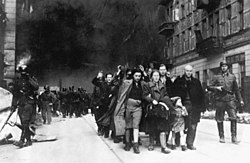This article needs additional citations for verification. (January 2024) |
Anonymous works are works, such as art or literature, that have an anonymous, undisclosed, or unknown creator or author. In the case of very old works, the author's name may simply be lost over the course of history and time. There are a number of reasons anonymous works arise.

Legal definitions
editUnited States
editIn the United States, anonymous work is legally defined as "a work on the copies or phonorecords of which no natural person is identified as author."[1]
Reasons
editIn the case of very old works, the author's name may simply be lost over the course of history and time. In such cases the author is often referred to as Anonymus, the Latin form of "anonymous".
In other cases, the creator's name is intentionally kept secret. The author's reasons may vary from fear of persecution to protection of his or her reputation. Legal reasons may also bar an author from self-identifying.[citation needed] An author may also wish to remain anonymous to avoid becoming famous for their work.
See also
editReferences
edit- ^ "Selected Sections of the Copyright Act". United States Code Annotated. 1997-12-17. Archived from the original on 11 May 2008. Retrieved 2008-06-22.